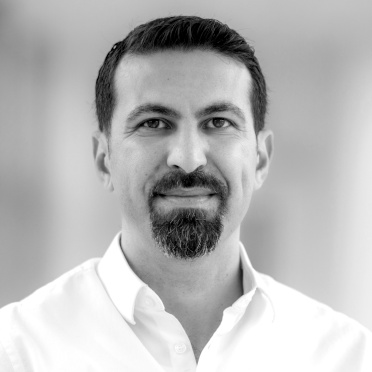Tutorial Submission
The ISC tutorials are interactive courses and collaborative learning experiences focusing on key topics of high performance computing, machine learning, data analytics and quantum computing.
Renowned experts in their respective fields will give attendees a comprehensive introduction to the topic as well as providing a closer look at specific problems.
Tutorials are encouraged to include a “hands-on” component to allow attendees to practice prepared materials.
Please note: the Call for Tutorials is closed!
IMPORTANT DATES
| Submission Deadline |
closed |
| Notification of Acceptance | Friday, February 9 12, 2024 |
| Working Materials for Tutorial Attendees due |
Tuesday, April 30, 2024 11:59 pm AoE |
| Tutorials |
Sunday, May 12, 2024 |
All tutorial speakers and attendees require a tutorial pass.
For accepted tutorials, ISC will provide a limited number of complimentary tutorial participation passes to tutorial presenters.
Registration fees will be published in early 2024.
TOPIC AREAS
- Tutorial submissions are encouraged on the following topics:
- Any topic area of interest listed in the call for research papers.
- Additional topics that expand broader community engagement.
- Innovative and emerging HPC technologies, e.g., cloud technologies for HPC, quantum computing, artificial intelligence, and machine learning.
- Introductory tutorials for attendees new to HPC
- We encourage tutorials that serve a broad audience over tutorials that focus solely on the research in a limited domain or a particular group.
- Practical tutorials are preferred to completely theoretical ones and we encourage organizers to incorporate hands-on sessions where appropriate.
SUBMISSION GUIDELINES & REVIEW PROCESS
Besides the information within the online submission form, the following information needs to be uploaded within a single PDF file and with the following sections:
- General Information
- Title of the tutorial
- Tutorial author(s) information
- Abstract (Maximum words: 200)
- Detailed description of the tutorial content (Maximum pages: 3)
- Overview and goals of the tutorial (takeaways for the audience)
- Targeted audience
- Detailed outline of the tutorial (with time slots)
- Description of hands-on activities, if applicable
- Updates from previous presentations, if applicable
- Number of attendees from previous tutorials, if applicable
- URLs to sample slides and other material
- Logistics
- Length of the tutorial: half-day (3.5 hours) or full-day (7 hours)
- Percentage of content split as beginner/intermediate or intermediate/advanced
- Requirements for attendees (e.g., laptop, remote server account)
- Estimated number of attendees (with short explanation, if applicable)
- Resume or CV of each presenter, including a list of recently taught courses or tutorials (2 pages maximum per presenter)
- Travel funding request, if applicable (see TRAVEL SUPPORT section below)
Review
- Each tutorial will be reviewed by a minimum of 3 reviewers.
- Criteria for review include originality, significance, timeliness, impact, community interest, attendance in prior years (if applicable), quality, hands-on activity, and clarity of the proposal.
- Reviews will include actionable feedback related to the length of the tutorials and the organization of the content (for example, suggestions to add and remove some contents).
Final decision (February 9, 2024)
- Selection of tutorials (with the objective of covering the largest variety of topics)
- Allocation of the time slot
- Notification of authors
- Tutorials committee reserves a right to assign a shepherd to some accepted submissions in order to ensure quality standards.
TERMS & CONDITIONS
- ISC 2024 is planned as an in-person conference from May 12 to May 16, 2024, in Hamburg, Germany. By submitting a tutorial proposal, you agree to organize and conduct the tutorial at the event in Hamburg, Germany.
- Tutorial presenters need to be registered as ISC 2024 participants. The ISC organizers will grant a 100% discount on the tutorial pass to a limited number of tutorial presenters.
- Full-day tutorials: at most, seven presenters
- Half-day tutorials: at most, four presenters
- Tutorial organizers are responsible for submitting the relevant material to be given to attendees (working materials). This material includes, but is not limited to slide sets, additional teaching material, and software installation plus usage guides for hands-on sessions. The tutorial organizers agree to release this material to the tutorial attendees.
- The ISC organizers will provide meeting room facilities and basic technical equipment for the tutorials, including wireless internet access. Tutorial presenters will have to bring their own presentation laptops and adapters. Hands-on tutorials must be prepared to rely on laptops brought by the participants.
In general, ISC does not cover travel, accommodation, registration fees and other such costs. But tutorial presenters from academia may receive travel support as follows:
| Max. travel funding per person |
Germany | Europe | Others |
| Full-day tutorial |
175 Euro | 300 Euro | 500 Euro |
| Half-day tutorial |
150 Euro | 250 Euro | 400 Euro |
Travel support will be granted to a maximum of two presenters from academia for half-day tutorials and four presenters from academia for full-day tutorials. Presenters holding two half-day tutorials are treated like presenters of full-day tutorials.
All requests for travel funding need to be included in the tutorial proposal.
ISC will make the working materials available in the event platform for registered attendees only.

